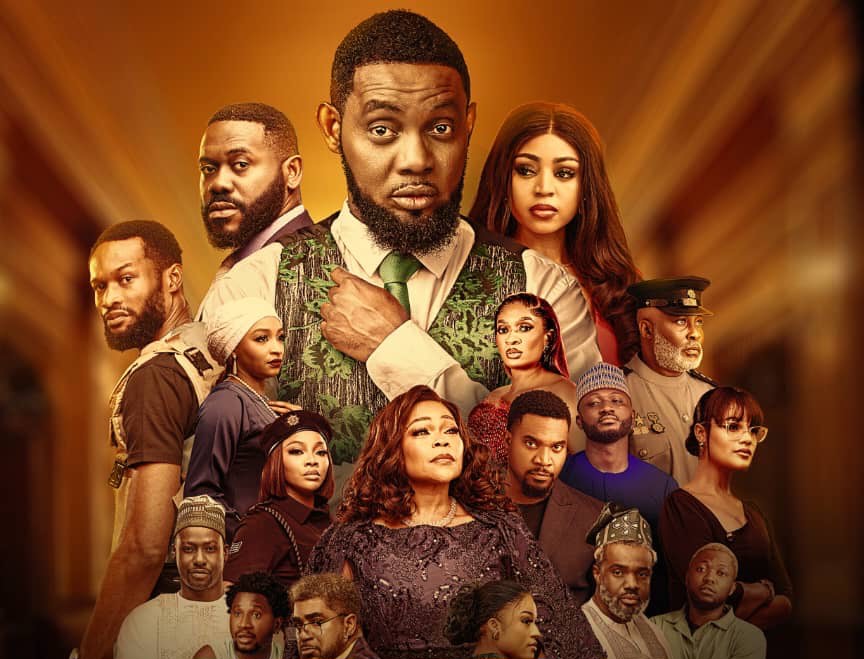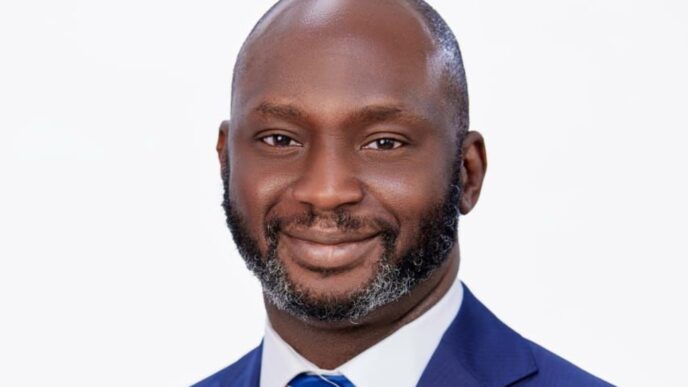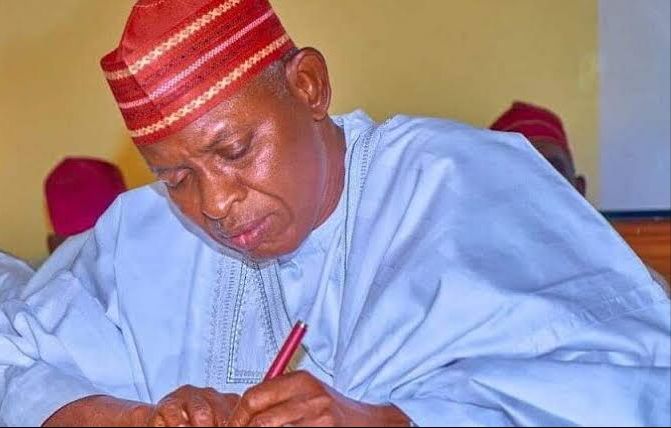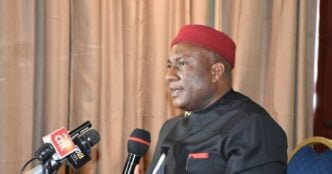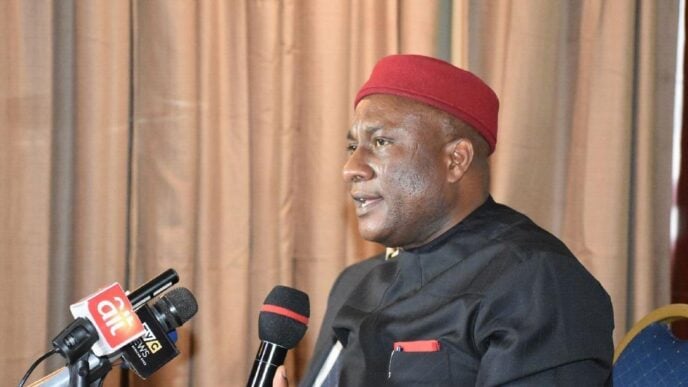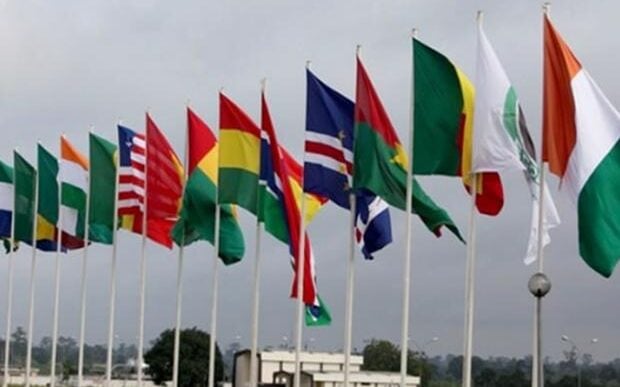BY KUNLE LAWAL
AY Makun’s latest film, The Waiter, marks a significant departure from his traditional comedic repertoire, delving into socio-political themes with a blend of action and drama. This cinematic shift underscores the potential of films to serve as powerful tools for political education, reflecting societal issues, stimulating public discourse, and shaping national consciousness.
Cinema possesses a unique ability to mirror society, offering narratives that educate audiences about political ideologies, power dynamics, and governance structures. Through storytelling, filmmakers can demystify complex political concepts, making them accessible to a broader audience. By portraying political scenarios, films like The Waiter can inspire civic engagement, critical thinking, and a deeper understanding of the political landscape. However, while the potential is immense, the medium must be approached with caution.
Nollywood’s role in political storytelling
Advertisement
As the third-largest film industry in the world, Nollywood has consistently proven its ability to shape societal narratives. With millions of viewers across Africa and the diaspora, it wields a unique influence on how Nigerians perceive politics, governance, and democracy. This influence is evident in a range of films that explore political themes:
King of Boys (2018): Kemi Adetiba’s thriller presents the power struggles and corruption within Nigeria’s political elite. While the movie highlights the tenacity and ambition of its protagonist, it also reinforces the public’s perception of politics as a dirty game dominated by self-serving interests.
October 1 (2014): Directed by Kunle Afolayan, this film explores the complexities of pre-independence Nigeria, shedding light on tribalism, colonial influence, and the sociopolitical tensions that shaped the country’s history.
Advertisement
Love is War (2019): Omoni Oboli’s film tells the story of a husband and wife running for the same gubernatorial seat. It offers a rare, nuanced exploration of electoral dynamics, campaign strategies, and the personal sacrifices involved in political ambition.
’76 (2016): This historical drama revisits the events surrounding the assassination of General Murtala Mohammed. By weaving a personal love story with national events, the film humanises the impact of political instability on ordinary lives.
These films demonstrate the diversity of political narratives Nollywood can offer, from deep explorations of historical events to critiques of contemporary governance. However, the question remains: Are these narratives fostering political literacy, or are they entrenching stereotypes?
The double-edged nature of political cinema
Advertisement
While films like King of Boys have been lauded for their compelling storytelling, they often perpetuate stereotypes of Nigerian politics as corrupt and violent. Such depictions, though grounded in reality, can discourage civic engagement by portraying politics as a space inaccessible to everyday citizens.
On the other hand, films like Love is War and October 1 balance their storytelling with nuanced perspectives, challenging viewers to think critically about leadership, governance, and the role of citizens in shaping their political landscape. These examples highlight the importance of accuracy and depth in political storytelling.
For Nollywood, the challenge lies in moving beyond sensationalism to craft narratives that educate and inspire. Political literacy is not just about exposing the flaws in the system; it’s also about offering solutions and showing the potential for positive change.
Collaborating for better political narratives
Advertisement
At The Electoral College Nigeria, we recognise the immense potential of Nollywood as a vehicle for political education. We are ready to collaborate with filmmakers, directors, and scriptwriters to ensure that political narratives are rooted in accuracy and relevance.
This collaboration could involve:
Advertisement
Workshops on political literacy: Engaging filmmakers in discussions about Nigeria’s political structures, history, and governance to help them create informed storylines.
Script consultations: Providing expert reviews of scripts that tackle political themes to ensure accuracy and depth.
Advertisement
Joint projects: Developing films or series that combine Nollywood’s storytelling prowess with the Electoral College’s expertise in political education.
By working together, we can create films that not only entertain but also enlighten, fostering a more politically aware and engaged citizenry.
Advertisement
Examples of potential impact
Imagine a Nollywood film that demystifies the Nigerian Constitution, showing how its provisions affect everyday life. Or a series that dramatizes the Electoral Act, using relatable characters to explain the significance of voting and accountability. Such projects could transform political education in Nigeria, making it accessible and engaging for millions.
Moreover, films can serve as a call to action, inspiring viewers to participate in governance beyond just casting their votes. For instance, a storyline highlighting the power of community organizing could encourage grassroots activism, while a film exploring the successes of local government autonomy could inspire public support for decentralization.
Conclusion: Shaping the narrative for Nigeria’s future
Cinema is a powerful tool for shaping national consciousness, but its influence is a double-edged sword. While films like The Waiter have the potential to enhance political literacy, careless portrayals can entrench harmful stereotypes and deepen public disillusionment.
As the most populous Black nation and a leader in African cinema, Nigeria has a responsibility to leverage Nollywood for the greater good. By crafting thoughtful, accurate political narratives, we can foster a more informed electorate, capable of engaging constructively in democratic processes.
At The Electoral College Nigeria, we remain committed to supporting this vision. Through collaboration with Nollywood, we aim to create stories that educate, inspire, and empower citizens. Together, we can ensure that political literacy through cinema becomes a force for positive change in Nigeria.
Kunle Lawal is the CEO of The Electoral College Nigeria
Views expressed by contributors are strictly personal and not of TheCable.
Add a comment
